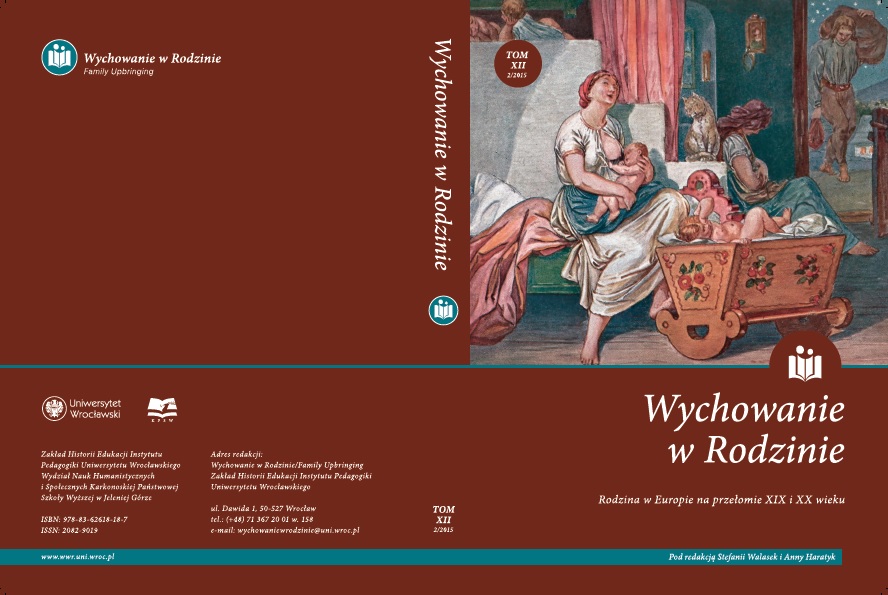Odpowiedzialność ojcowska za wychowanie potomstwa w świetle piśmiennictwa moralizatorsko-dydaktycznego okresu pełnego średniowiecza
Fatherly responsibility for educating his offspring as reflected in moral and didactic writings in the High Middle Ages
Author(s): Witold BrzezińskiSubject(s): History, Social Sciences, Sociology, Family and social welfare
Published by: Zakład Historii Edukacji w Instytucie Pedagogiki Uniwersytetu Wrocławskiego
Keywords: fatherly responsibility; parent-children relations; mirrors of princes; Vincent of Beauvais; William Perault; Giles of Rome
Summary/Abstract: The paper is concerned with the issue of the source of the fatherly responsibility for bringing up his offspring as it was presented in three selected thirteenth-century educational treatises. These are De regimine filiorum nobilium by Vincent of Beauvais, Deerudicione principum by William Perault, and De regimine principum by Giles of Rome. Both Vincent of Beauvais and William Perault drew on precepts of the Old and New Testaments and the recommendations of the Church Fathers to motivate fathers in the upbringing up their offspring. In doing so, on the one hand they refer to their authority that will make fathers obey them. On the other hand, by addressing selected biblical statements and their own comments and interpretations, they first of all try to convince fathers of the need for performing their parental responsibilities, pointing tothe results that come from neglecting or fulfilling them. In turn, for Giles of Rome thekey role in making fathers perform their responsibilities towards their offspring is played by love that is, in his opinion, inherent in the relationships between fathers and their offspring. It is somewhat the same as the human desire to preserve their species,and as it instinctive. Also he refers to the social order to show that the supply of goods,including upbringing, by a father to son reflects the situation specific to the relationship between a person located higher and a person located lower in the social hierarchy. He does so, however, not to convince fathers to perform their responsibilities, but to show the forms in which his love can be expressed.
Journal: Wychowanie w Rodzinie
- Issue Year: XII/2015
- Issue No: 2
- Page Range: 297-308
- Page Count: 12
- Language: English, Polish

